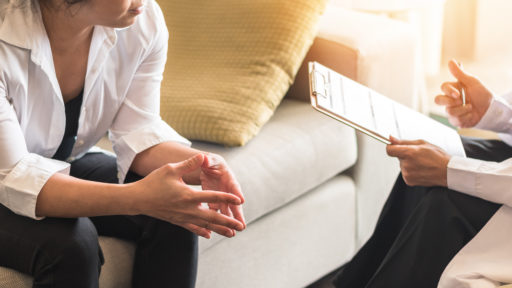Description
Talking about mental health can be a challenge but it should be integrated as a normal part of our day.
Video Player
Transcript
Sufna John: Helping kids understand the importance of talking to trusted adults in their life I don’t think that can be overstated. I think one of the first steps is helping kids figure out who are those trusted adults helping them to identify in your life where are the grown-ups you have where you could talk to them about what your needs are.
Allison Smith: I think a critical first step is to look around as adults and to think about what message do we send kids about talking about mental health so are we being those trusted adults that they can turn to are we giving them cues from our conversation from our actions from the ways we talk about other people with mental health problems that it’s okay to talk about it.
Jason Wallace: They have to have somebody in their community that they trust whether it be a teacher whether it be one of the city officials whether it be a pastor. Go talk to them privately and let them know listen I really think I need help in this area but I’m scared our whole life we’ve been told we not supposed to talk about this stuff they’re going to have to reach out it’s hard to reach out it’s hard to take that first step because you don’t want to get shot down you don’t want to get exposed so but they have to reach out there’s someone there that’s willing to help them there’s someone there that can direct them to the proper people to get them help and once they receive that help it’s like a breath of fresh air.
Isis Pettway: The trusted adult matters and more times than not kids have identified that person sometimes it’s a teacher it might be an aunt it might be an uncle it might be a friend it might be a friend’s parent and so what I would say to that is if you have this person in your life they’ve already build number one you have that rapport so there’s a relationship there it’s not just in out of the blue so somewhere in there some rapport was built there’s a relationship and so bottling it up no one can help you if you don’t say anything and so even if it’s hey you know Miss so and so I’m not okay or Mr so so, I’m not okay.
John: A lot of times the way that we help kids know that they can talk about something with us is us bringing it up and talking about it first; it just makes it a lot easier for kids to know like that’s a conversation I’m ready to have and so just like parents would talk to their kids about physical health it’s important when you’re learning how to take a bath how to clean your body properly it’s important as a parent to teach your kid this is how you stay mentally healthy this is how you deal with emotions and I’m going to normalize that conversation so that way if you’re having a difficulty with that you would know I’m someone who game to talk about those things because I’ve already brought them up with you.
Beth Toddy: So something that has worked for me is that I before bedtime and and it doesn’t have to be before bedtime but just anytime 30 minutes you know to an hour where you just set aside time to talk um about all the things ask how you know how their day went their issues their problems they’re only going to get bigger for them as they get older so if you if you can hold off you know your em your own emotional response and just give them the space that they need um to be heard because that’s really all that they want is just to be heard you’ll find that the communication lines can open up and stay open if you continue to do that.

